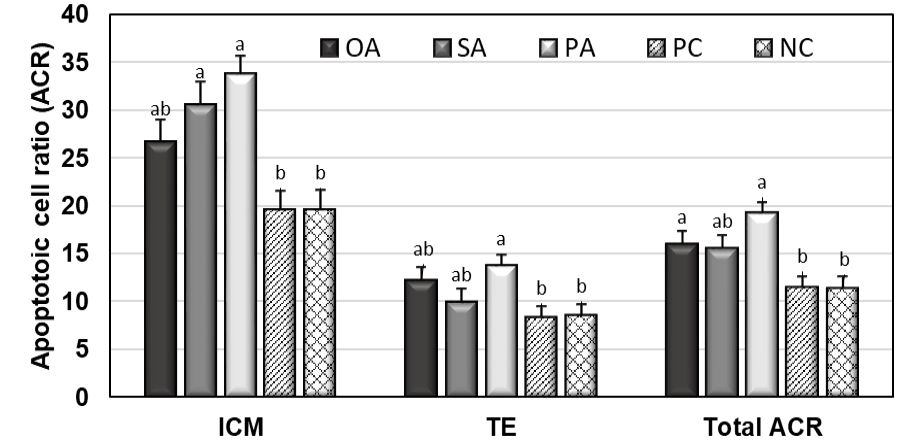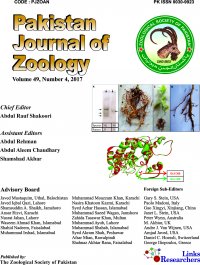Assessing the Quality of Bovine Embryos Derived from Metabolically Stressed Oocyte during Maturation using TUNEL
Assessing the Quality of Bovine Embryos Derived from Metabolically Stressed Oocyte during Maturation using TUNEL
M.A.M.M. Shehab-El-Deen1,2*, S.A. Al-Dobaib1 and K.A. Al-Sobayil1
Cell number (mean±SE) of inner cell mass (ICM), trophectoderm (TE) and total cell number in bovine embryos (8 dpi) derived from oocytes matured either in oleic acid (OA) (C18:1), stearic acid (SA) (C18:0) or palmitic acid (PA) (C16:0). Negative control (NC) was maturation medium and positive control group (PC) was maturation medium with the addition of pure ethanol. a, b Bars bearing different superscripts differ within each category; inner cell mass (ICM), trophectoderm (TE) or total blastocyst cell number (P<0.01).
Apoptotic cell ratio (ACR) (mean±SE) in inner cell mass (ICM) and trophectoderm (TE) of bovine embryos (8 dpi) derived from oocytes matured either in palmitic acid (PA) (C16:0), stearic acid (SA) (C18:0) or oleic acid (OA) (C18:1). Negative control (NC) was maturation medium and positive control group (PC) was maturation medium with the addition of pure ethanol. a, b Bars bearing different superscripts differ within each category; inner cell mass (ICM), trophectoderm (TE) or total blastocyst cell number (P<0.01).












